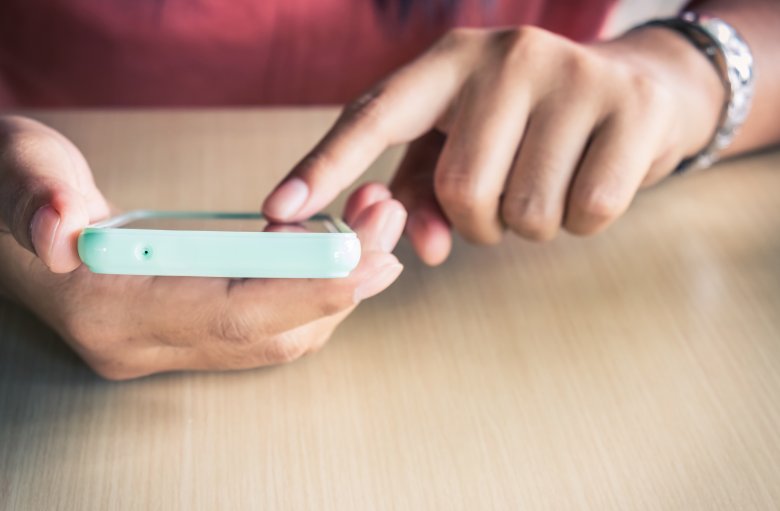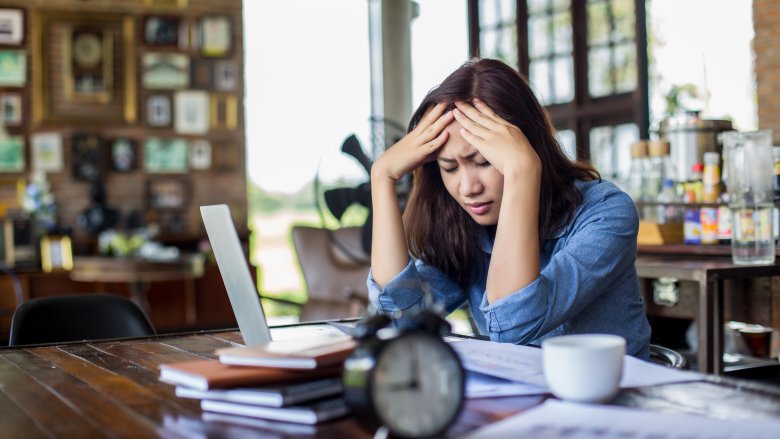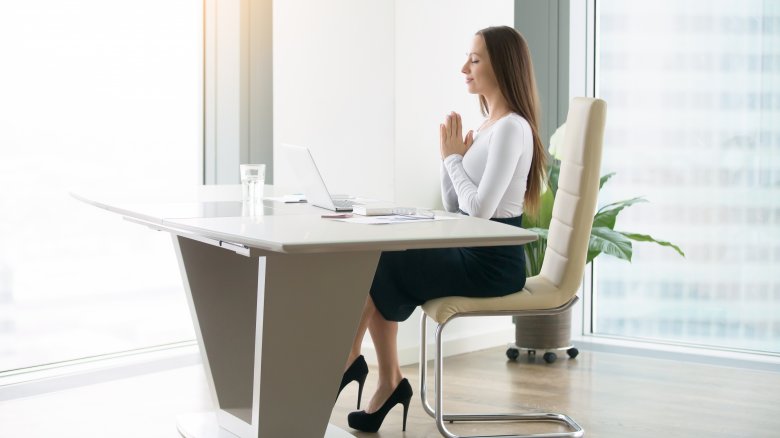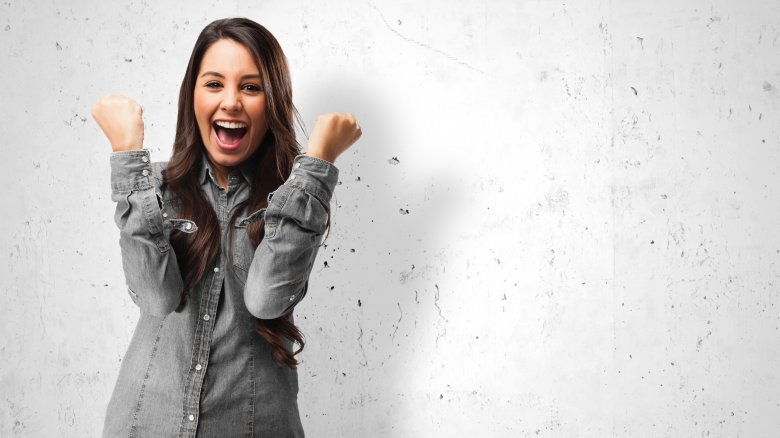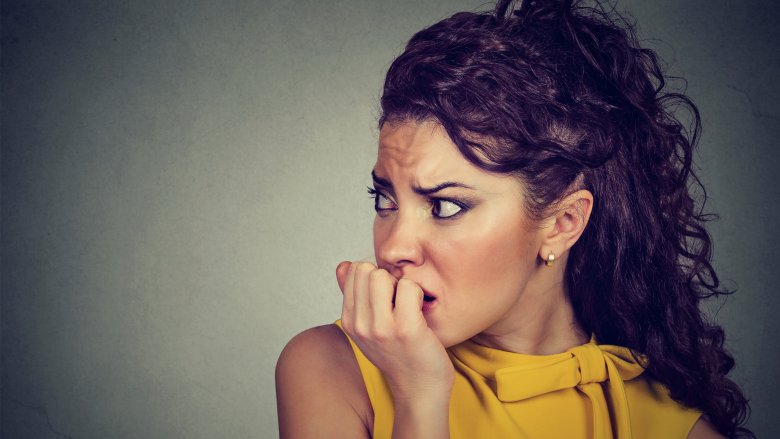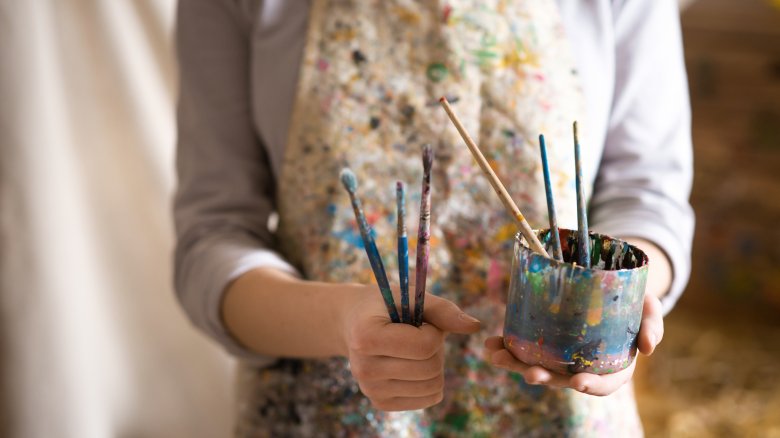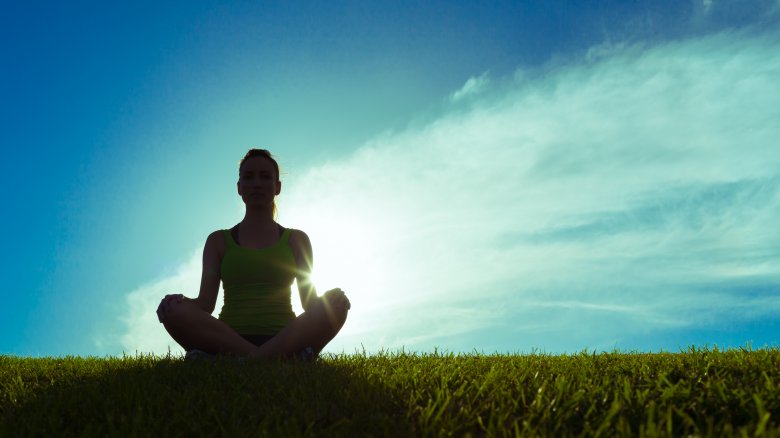What Really Happens To Your Body When You Give Up Social Media
If I were a betting woman, I would imagine that you are reading this article on your smartphone right now. Social media partnered with our electronics has a magical way of connecting us to friends, family, and information around the world. We can learn a new language, reconnect with old college friends, and find a personal trainer, all from our beds. However, social media can also start to take over our lives. It is essentially one big distraction from the present moment, and most of us are so used to it, that we have forgotten what it feels like to just be. So what would happen if we gave it up for an entire day, week, month, or year? According to research and the experts, amazing things.
Deeper family connections
One of the first benefits of putting down our phones would be actually making eye contact and connecting with those around us. I recently spent a week away with my family at a cabin without internet or cell service. Instead of mindlessly scrolling Facebook, I found myself making up silly games with our daughter and dreaming with my husband about our future.
Life Coach and Author Celia Ward-Wallace also decided to try it for herself and challenged her family to give up all electronics for two weeks. They said no to emails, television, and cell phones. "It was just what we needed. We slept more, talked more, and spent more quality time together," she told me. "There is no debating the convenience and ease of our gadgets. However, unplugging made us all more conscious of the impact these devices have on our mental, physical, and spiritual health."
Ward-Wallace told me that her family noticed they felt closer, more relaxed, and more connected to nature. They were also more physically active and slept better. Not bad for just two weeks without the phones.
You might feel withdrawal
Here's a tough little piece of reality to swallow. We may actually be addicted to checking our social media channels. That means that if we commit to taking a break from it, we may feel some pain or withdrawal feelings.
"For the first few days I experienced anxiety and other symptoms of withdrawal. I felt like I should be productive with cleaning, working, doing something," said Ward-Wallace. "I definitely felt the lure of the phone to check emails and social media. Going without my phone was like losing a piece of myself, the phone literally felt like an extension of my being."
Be honest with yourself. Would your hand feel weird if it didn't have a phone in it? I know mine would. Maybe it's time to give this a try.
You'll become more productive
A status update here and a like there take a mere five seconds, but it takes our brains time to refocus on what we were doing. If you're interested in getting more done in less time, the perfect first step is cutting back on social media.
"The thing about social media is that it constantly interrupts us," Joanne Cantor, PhD told Readers Digest. "When we stop ourselves to check social media again and again, it really becomes another form of multitasking, and multitasking makes whatever you do take longer, and you do it in an inferior way."
According to the American Psychological Association, constantly going back and forth between your phone and your work can cut your productivity by as much as 40 percent! Focus on one thing at a time to get the most done.
You'll sleep better
I often spend my evenings winding down with social media. I'll keep updated with friends' adventures on Instagram or search for new recipes on Pinterest. I find it relaxing, and it definitely doesn't seem to energize me, but staring at my phone does have an effect.
"We now have access to a constant stream of information and connection that keeps us turned on and engaged all hours of the day and night," Sleep and Wellness Expert Parinaz Samimi told me. "The combination of technology and social media is slowly starting to demonstrate serious health risks as studies are discovering a link between the use of social media and sleep disturbance." Because we're so used to checking social media in the evenings, we're actually throwing off our body's natural cycles.
"Research has identified a disruption in the body's circadian rhythm upon exposure to blue light, thus affecting a healthy and consistent sleep pattern. It is recommended to turn off electronic devices and stop social media use one hour prior to bedtime," advised Samimi. "This allows time for the mind to quiet down and to engage in less stimulating activities like meditation or reading to promote sleep."
You'll have more time
A comment here or a double-tap there don't seem to take up a lot of time. However, start noticing just how often you're reaching for your phone. Those little moments add up, and imagine what you could do with all of that time if you spent it intentionally on something you love.
"In addition to getting better quality sleep, giving up social media has many positive results," explained Samimi. "It makes it possible to have more self-care time, establish more meaningful in-person connections, and utilize the extra time to engage in activities that promote overall wellness."
You'll feel more confident
We all know that social media feeds are highlight reels. Everyone is busy posting pictures of their latest vacation or a #TBT picture from their wedding. No one is posting about the mundane stuff. When was the last time you saw a friend post a picture of herself paying bills, cleaning her toilet, or sneaking one more cookie at midnight? Even though we know people only post their highlights, it's still easy to get sucked in and start comparing yourself.
"Social media allows us is to hide behind screens and present the lives we want others to think we have. Most people would not post unflattering photos of themselves or share about fights with their partners," Clinical Social Worker and Therapist Kimberly Hershenson told me. "We often see pictures about vacations, fun activities, and photoshopped bodies. This leads to comparisons, which, inevitably, can affect your self-esteem. It's all too easy to think, 'why are they so happy when I'm struggling?' The truth is, we don't know what is truly going on with people's lives."
You'll feel happier
It feels pretty good to post your beautiful vacation pictures and later read all of the friendly comments. However, there's a dark side to letting social media affect how you're feeling.
"Rude comments or bullying in general can make one feel hurt, sad, or angry, leading to feelings of depression, anxiety, or self-esteem issues," Hershenson explained. "When the rude comments or bullying are online, and you are looking at social media at home or at work, it can be even worse because it is happening to you in a place you should feel safe, possibly when you are around people important to you such as your children."
As our dependence on social media grows, so does our emotional attachment. "Since the written word is often worse than the spoken word due to its permanency, it may feel like you can't escape the bullying since you are seeing the comments every time you return to the offending page," said Hershenson. If you have been feeling upset or stressed after scrolling your social media, it's time to take a serious break.
You may feel anxious at first
Fear of missing out or FOMO is a real thing, especially when it comes to social media. "Social media and the likes, retweets, and other plaudits that it instantly generates mimics the same mechanisms in a drug habit," Anjhula Mya Singh Bais, PhD told me. "The kick, the high is not dissimilar to the reward areas that fire up in your brain (amygdala and striatum) when you take a sip, drag, or have a hit." It's way too easy to become addicted to social media without realizing it, and quitting may be harder than you think.
"I recently participated in Vipassana, a 2,500 year old meditation technique that is practiced for ten days under a vow of complete silence. All participants had to check in and relinquish their social media devices and smartphones," said Bais. "Many people dropped out on the fourth day, and though I couldn't speak at the retreat, my observation was that their anxiety and agitation mimicked withdrawal symptoms. As much as we would like to think that instagramming is harmless fun, it has serious consequences and should be treated like any other addiction."
Fortunately, that initial anxiety won't last forever. Just remember that it will be worth it.
You'll be more creative
I love this benefit of taking a social media fast. During my vacation from social media, I did a lot of journaling and reflecting on my business. Every time I had a new idea, my first impulse was to pull up Facebook to see if and how other people were implementing it. It was a tough habit to break, but once I did, I was flooded with inspiration for new products and programs that I wouldn't have gotten from looking at what everyone else is doing. "Having that social media in the background and calling to you and asking you things interferes with your creativity," Cantor told Readers Digest.
You could change your life
Even though I only gave up social media for one week, I felt the positive effects, so committing to a longer period could absolutely be life-changing. When Author Bailey Gaddis made the decision to give up social media, everything in her life changed.
"I gave it up cold turkey for 30 days and felt so empty in the beginning. I was struck by how stagnant and uninspired my life had become," she told the Huffington Post. "I was bored. My husband always says, 'If you're bored, you're boring.' And he's right. The numbing effect of social media made me boring." Gaddis had lost her own unique creativity, and it took time to get it back. "After two weeks, my loneliness, boredom, social ineptitude, and anxiety began to wear off," Gaddis shared. "It was replaced with productivity, sparks of original ideas, new friends, conversations free of blank, uncomfortable stares, a renewed connection with the physical world, and a happier toddler." Gaddis experienced all of this after just 30 days off social media.
"Giving up the stream of everyone else's consciousness allowed me to step back into my own. Listening to the weird, confusing, and pretty wonderful pattering of my own mind felt like discovering a long-lost home," wrote Gaddis. If you have been feeling disconnected from yourself or your life, ask yourself if it's time to turn down the volume on the social media around you.
Is it time to give up social media?
Fortunately you don't have to completely give up your computer and smartphone to start getting some of these benefits. All you need to do is take an occasional break.
"Your mood is affected by what you see on social media," said Hershenson. "If you start feeling sad, depressed, angry, or jealous by what you see online, this is a sign your self-esteem is being impacted." Also if your mood starts to be controlled by how many likes or comments you get, it's best for you and your health to take a serious break.
Also pay attention to how you react to others' statuses. Hershenson said if you start to notice yourself feeling relieved or happy when things go wrong for others, it's time to take a step back. "For example, if a friend's status changes from 'in a relationship' to 'single,' and you find yourself elated, you are really validating your own unhappiness by comparing yourself to others," she told me.
How to take a break
So you're ready to take a break, but don't even know where to start? Make small changes in the beginning and monitor how you feel. "Turn off your phone and computer for a night and enjoy doing something free from technology, such as enjoying a nice meal, meditating, or taking a warm bath," suggested Hershenson. "After taking the first step to disconnect, begin thinking about taking a longer break and getting back into real life."
